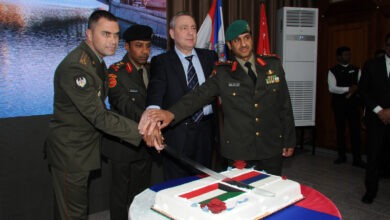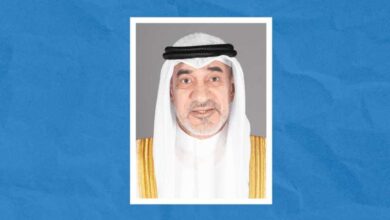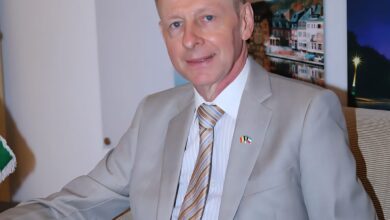Diplomacy Involves Empathy, Listening, Life-Long Learning
In our ongoing series on ‘Honoring Women Reshaping World Diplomacy’, The Times Kuwait speaks this week with the Ambassador of the United States, H.E. Karen Sasahara, on her thoughts about the role and impact of women in leadership, and more specifically, in the field of diplomacy.
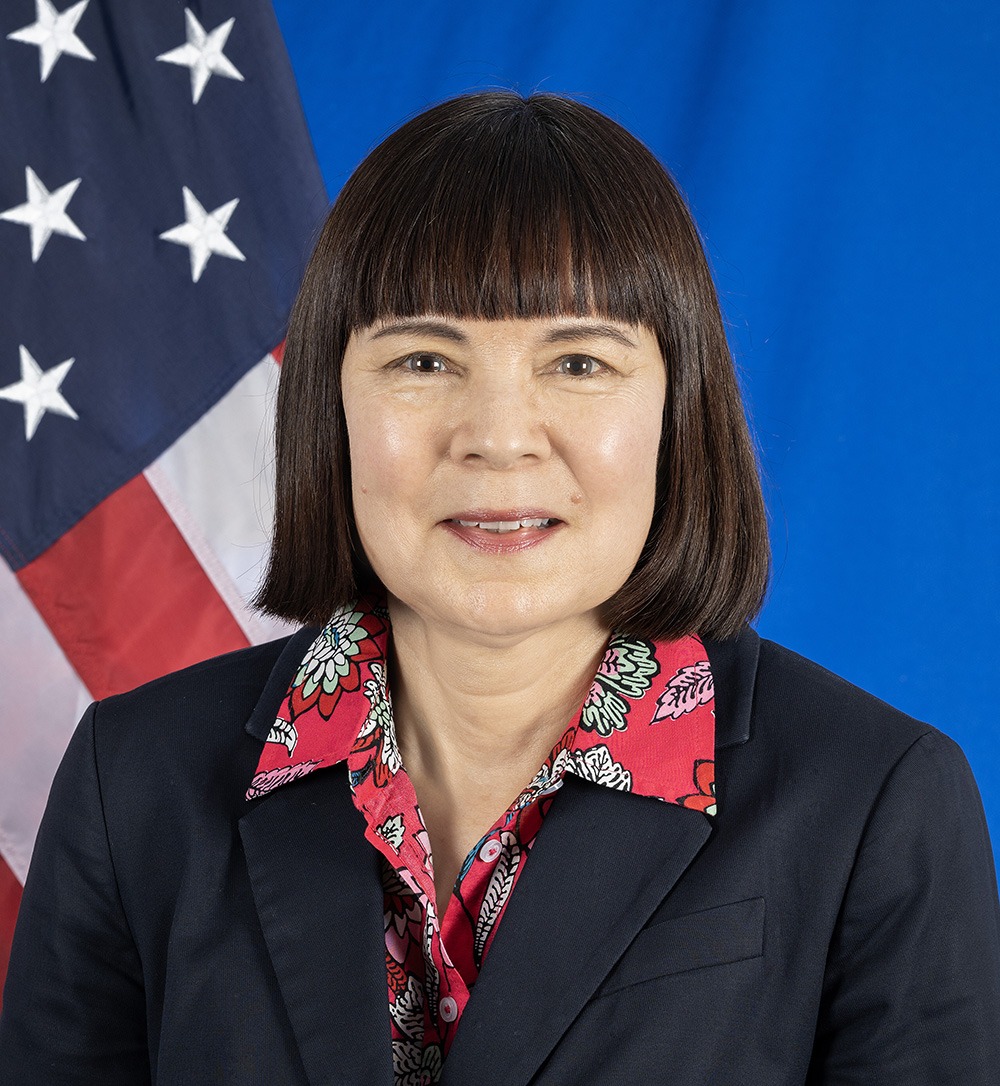
The Times Kuwait Report
What made you decide to become a diplomat?
Becoming a diplomat was not something that I thought about consciously, but my university friends and classmates were from so many different countries. It was interesting to get to know them, their cultures and politics. I moved to Washington DC for graduate school and began to meet Foreign Service Officers (diplomats) from the State Department. The work and the life seemed really interesting, and so I took the Foreign Service exam and passed. Taking the exam was one of the best decisions I’ve ever made.
What challenges have you faced as a female diplomat and how did you overcome them?
I have to be honest, I don’t recall encountering any blatant or obvious discrimination because of my gender. Maybe I wasn’t perceptive enough! I think that many countries are aware that American diplomats come from a variety of backgrounds, regions of our country, etc.
I have spent virtually my entire career working in the Middle East. I have always been treated with respect. People always extended genuine hospitality to me. The trait that governments want to see in all diplomats is professionalism, strong job knowledge, and solid preparation for their assignment.
How does gender influence your approach as a diplomat?
I don’t consciously think about it, but it’s important to evaluate when my presence is or isn’t appropriate for whatever reason. I think most women focus on establishing common ground and positive communication when working to establish a professional relationship in any field. It helps in both the smooth and rough times. I think all good diplomats seek to achieve that goal, male or female.
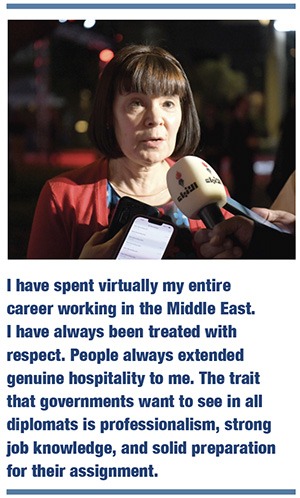 Further, a good diplomat has the ability to interact with people from across the socio-economic spectrum. Anytime when you can make a connection with someone that leads to collaboration on some project or resolves an issue you’re making a meaningful impact in your work.
Further, a good diplomat has the ability to interact with people from across the socio-economic spectrum. Anytime when you can make a connection with someone that leads to collaboration on some project or resolves an issue you’re making a meaningful impact in your work.
What leadership qualities are essential for success in the field?
The ability to listen, keep learning, and show empathy. Leadership can be customized, but it should not be personalized; i.e., a cult of personality. Likewise, leave your personal problems and biases outside of the workplace. You’re a role model for people and they will watch very carefully how you handle stress, and difficult or sensitive issues.
Lastly, any leader who is not willing to say to someone “I was wrong,” “you were right,” or “I didn’t know that” is not much of a leader. Frankly, they’re probably not a very good friend, colleague, or even a spouse. Ego and insecurity often are the biggest obstacles to successful management or leadership and are the fastest ways to kill morale, motivation, and teamwork.
What advice do you have for young women who want to be diplomats?
First, don’t dwell on the fact that you’re a woman. That’s pretty obvious to people. That said, you have to have, or develop, emotional intelligence to recognize when your gender is a ‘problem’ for someone. How you handle or resolve someone else’s ‘problem’ is probably the most important diplomatic skill that you will ever develop. It will carry you through life, not just through your diplomatic career.
Secondly, have a good understanding of the profession/career. Learn about the pros and cons of the job. Traveling in a diplomatic career is great, but remember that you will have to spend many years away from your family and friends. It’s a sacrifice to not be able to attend important family events because you’re on the other side of the planet. Be realistic about your abilities. Do you have the skill set to be a good diplomat or does it just sound prestigious? Are you willing to keep learning? Are you willing to work long hours on behalf of your country?
How can diplomacy better reflect the diversity of societies it represents?
Any country’s diplomatic service can be stronger and more effective with representation from all of its communities. The non-negotiable criteria should be that every diplomat has the competence and the ability to do the job successfully.








